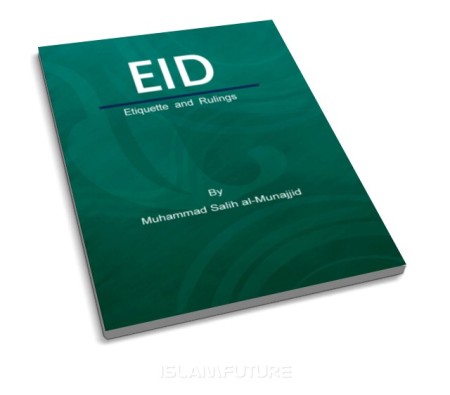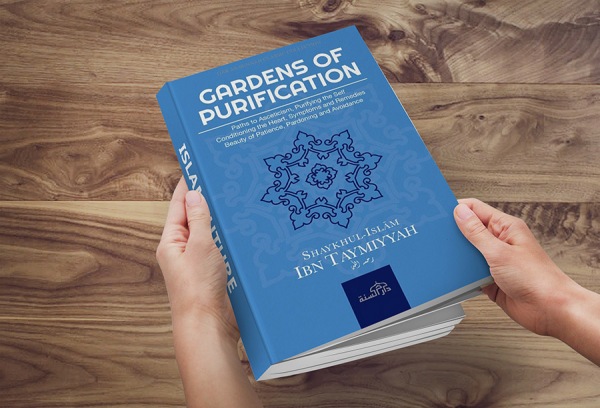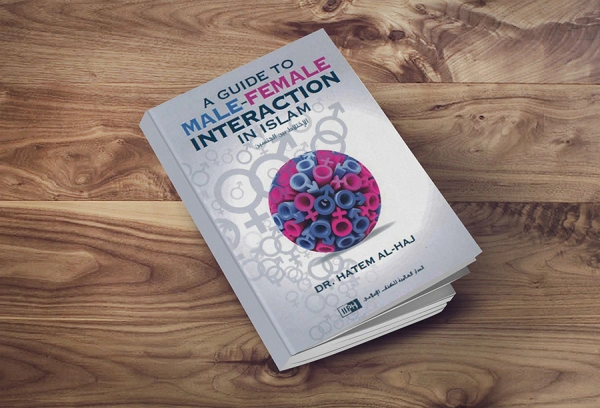
Sheikh Muhammad Salih Al-Munajjid
Language: English | Format: PDF | Pages: 37 | Size: 1 MB
Praise be to Allaah, Lord of the Worlds, and peace and blessings be upon our Prophet Muhammad and upon all his family and companions.
“Eid” is an Arabic word referring to something habitual, that returns and is repeated. Eids or festivals are symbols to be found in every nation, including those that are based on revealed scriptures and those that are idolatrous, as well as others, because celebrating festivals is something that is an instinctive part of human nature. All people like to have special occasions to celebrate, where they can come together and express their joy and happiness.
The festivals of the kaafir nations may be connected to worldly matters, such as the beginning of the year, the start of an agricultural season, the changing of the weather, the establishment of a state, the accession of a ruler, and so on. They may also be connected to religious occasions, like many of the festivals belonging exclusively to the Jews and Christians, such as the Thursday on which they claim the table was sent down to Jesus, Christmas, New Year’s, Thanksgiving, and holidays on which gifts are exchanged. These are celebrated in all European and North American countries nowadays, and in other countries where Christian influence is prevalent, even if the country is not originally Christian. Some so-called Muslims may also join in these holidays, out of ignorance or hypocrisy.
The Magians (Zoroastrians) also have their own festivals, such as Mahrajaan, Nowruz and so on.
The Baatinis have their own festivals too, such as “Eid al-Ghadeer”, when they claim that the Prophet (peace and blessings of Allaah be upon him) gave the khilaafah to ‘Ali (may Allaah be pleased with him) and to the twelve imaams after him.
The Muslims are distinguished by their festivals
The Prophet’s words “Every nation has its festival, and this is your festival” indicate that these two Eids are exclusively for the Muslims, and that it is not permissible for Muslims to imitate the kuffaar and mushrikeen in anything that is a distinctive part of their celebrations, whether it be food, dress, bonfires or acts of worship. Muslim children should not be allowed to play on those kaafir festivals, or to put up decorations, or to join in with the kuffaar on those occasions. All kaafir or innovated festivals are haraam, such as Independence Day celebrations, anniversaries of revolutions, holidays celebrating trees or accessions to the throne, birthdays, Labour Day, the Nile festival, Shimm al-Naseem (Egyptian spring holiday), teachers’ day, and al-Mawlood al-Nabawi (Prophet’s Birthday).
The Muslims have no festivals apart from Eid al-Fitr and Eid al-Adhaa, because of the hadeeth narrated from Anas (may Allaah be pleased with him) who said: “The Messenger of Allaah (peace and blessings of Allaah be upon him) came to Madeenah and the people had two days when they would play and have fun. He said, ‘What are these two days?’ They said, ‘We used to play and have fun on these days during the Jaahiliyyah. The Messenger of Allaah (peace and blessings of Allaah be upon him) said, ‘Allaah has given you something better than them, the day of Adhaa and the day of Fitr.’”
(Sunan Abi Dawood, 1134)
These two Eids are among the signs or symbols of Allaah which we must celebrate and understand the aims and meanings behind them.
There follows a discussion of some of the rulings and manners of the two Eids according to Islamic sharee’ah
1 – Ahkaam al-Eid (Rulings on Eid)
Fasting
It is haraam to fast on the days of Eid because of the hadeeth of Abu Sa’eed al-Khudri (may Allaah be pleased with him), who said that the Messenger of Allaah (peace and blessings of Allaah be upon him) forbade fasting on the day of Fitr and the day of Sacrifice (Adhaa).
(Reported by Muslim, 827)
Ruling on the Eid prayers
Some of the scholars say that Eid prayers are waajib (obligatory) – this is the view of the Hanafi scholars and of Shaykh al-Islam Ibn Taymiyah (may Allaah have mercy on him). They say that the Prophet (peace and blessings of Allaah be upon him) always prayed the Eid prayer and never omitted to do it, not even once. They take as evidence the aayah (interpretation of the meaning), “Therefore turn in prayer to your Lord and sacrifice (to Him only)” [al-Kawthar 108:2], i.e., the Eid prayer and the sacrifice after it, which is an instruction, and the fact that the Prophet (peace and blessings of Allaah be upon him) ordered that the women should be brought out to attend the Eid prayers, and that a woman who did not have a jilbaab should borrow one from her sister. Some scholars say that Eid prayer is fard kifaaya. This is the view of the Hanbalis. A third group say that Eid prayer is sunnah mu’akkadah. This is the view of the Maalikis and Shaafa’is. They take as evidence the hadeeth of the Bedouin which says that Allaah has not imposed any prayers on His slaves other than the five daily prayers. So the Muslim should be keen to attend Eid prayers, especially since the opinion that it is waajib is based on strong evidence. The goodness, blessings and great reward one gets from attending Eid prayers, and the fact that one is following the example of the Prophet (peace and blessings of Allaah be upon him) by doing so, should be sufficient motivation.
Essentials and timing of Eid prayer
Some scholars (the Hanafis and Hanbalis) say that the conditions of Eid prayer are that the iqaamah should be recited and the prayer should be offered in jamaa’ah (congregation). Some of them said that the conditions of Eid prayer are the same as the conditions for Friday prayer, with the exception of the khutbah, attendance at which is not obligatory. The majority of scholars say that the time for the Eid prayer starts when the sun has risen above the height of a spear, as seen by the naked eye, and continues until the sun is approaching its zenith. Continue reading →









